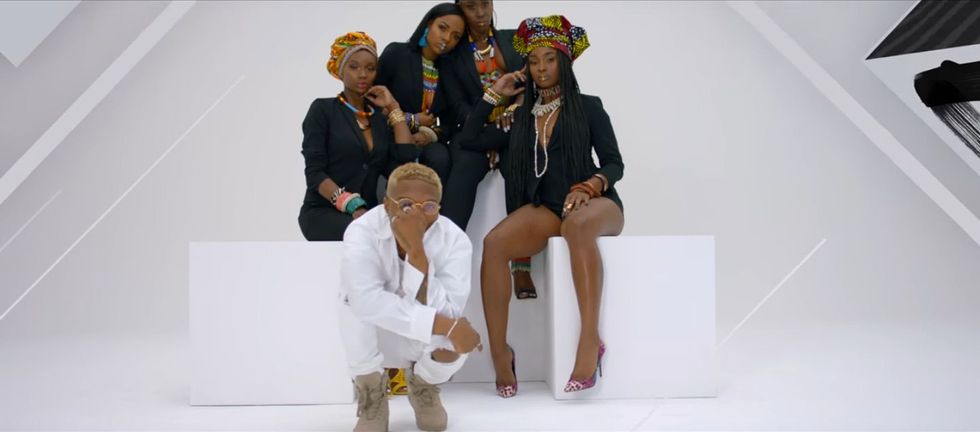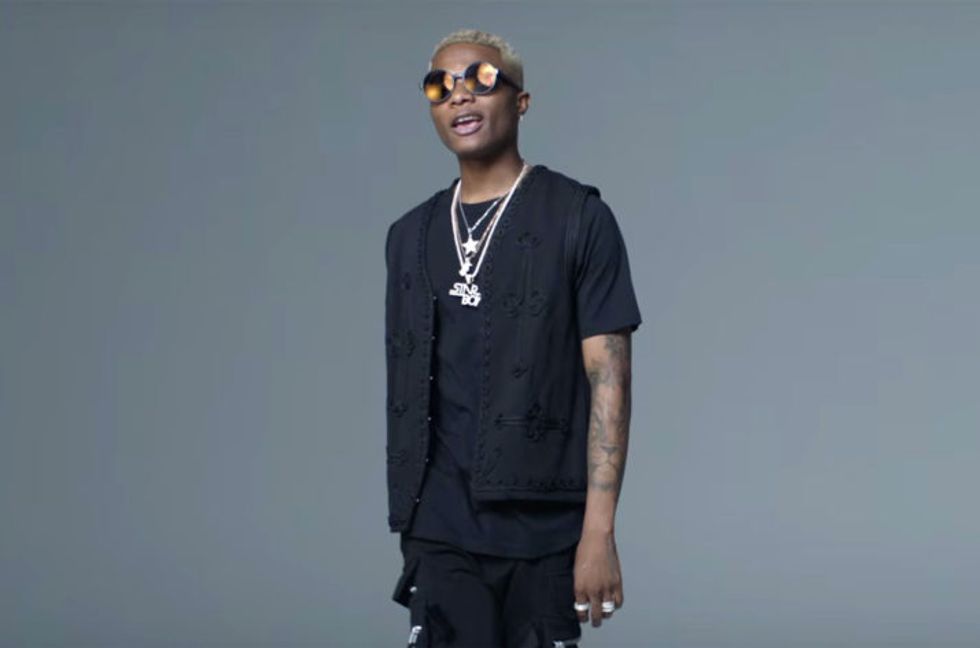Wizkid Comes Even Closer to Global Stardom, With or Without Drake
Drake’s absence in "Come Closer" may turn out to be a blessing of sorts, as the single breaks 2 million views, the glory will be Wizkid’s to keep.

When Wizkid and Drake's “Come Closer" was leaked online on a Saturday in January, it seemed like the biggest blunder.
Here was the follow up to “One Dance", which has exceeded one billion streams on Spotify alone, the lead single to the long-gestated follow up album to 2014's Ayo, and what seemed like the next big step that could dominate charts and firmly root afrobeats into pop consciousness.
By the next day Sunday, the song had been removed from a few sites, possibly ruining some label execs and lawyer's Sunday brunch—and Wizkid's summer.
Related: Listen to New Wizkid Songs From His Surprise 2019 EP 'Soundman Vol. 1'
This was not to happen. “Come Closer" is now an official single and the video is a visual feast, and a cleverly calculated one that is aimed at both afrobeats fans and the international markets in near-equal measure.
The association with Drake and resemblances to other summer hits will appeal to both stations, but on different wavelengths. Many will be glad to have this year's “Work" or "One Dance," while others will be glad one of theirs is now a major player in such a lucrative field.
Many others will gripe about the absence of Drake. This is at first conspicuous, but after watching it a few times, and judged on its on merit, it throws up many other interesting things, tastefully assembled by British-Nigerian director Daps.
There are any number of reasons why Drake isn't in the video. To start with, jumping on the remix of “Ojuelegba", along with Skepta, gave Wizkid a significant boost in name recognition, just when his popularity seemed to have peaked with the release of Ayo.
This rocketed to global status when “One Dance" became the first song to reach and surpass one billion streams on Spotify alone, the royalties from which are surely a considerate sum. Perhaps Drake figured contributing an intro and a verse to “Come Closer" is a favour well returned to Wizkid for co-writing and co-producing “One Dance."
More Life is causing all kinds of stirs and could reach one and a half, or even two billions streams on Spotify alone. Featuring in the video for “Come Closer" would seem like overcompensation to Wizkid especially when More Life is webbing the charts. Siphoning some of that high octane into Wizkid's Starboy vehicle might make it even more efficient—or too efficient.
It is less plausible that Wizkid didn't want Drake in the video. Neither is it impossible that Drake was prevented by some contractual hiccup.
Perhaps his parent label, Universal Music Group, didn't see the wisdom in their prized driver propelling another company's, Sony via RCA, driver to a pole position when both are in the same fast lane to the summer markets.
This seems even truer if one considers the fact that save for “Passionfruit," there isn't, on More Life, another unabashed summer song like “One dance" or “Controlla" or “Work," which is closing in on one billion views on YouTube.
“Come Closer" is a clever aggregate of these songs for several reasons. To start with, the beat has the same piano from “Controlla" and “Work" (and many other dancehall and “afro-bashment" songs surely, but they don't all have either artists on them).
The video for “Come Closer" tells of a different lattice work. One prominent strip is the strong aesthetic similarities to Drake's “Hotline Bling".
Both videos were clearly shot in a studio and against plain, single-coloured backgrounds. In the former, these were in white and gray colours which turn into rich blues, greens and oranges when Drake's verse comes on. In the latter, the entire video is drenched in neon lighting as if to subsume all five minutes of “Hotline Bling" into one minute of “Come Closer."
The only other time one sees bursts of bright colours is on the wax prints won by the models which tells a different though related story of its own—that of the resurgent pride in African prints and its inventive interpretation by designers. Runtown made a meal of it in his video for “Mad Over You," the best iteration, in a music video, of said pride I've yet seen.
Christopher Walken seemed to have made a fool of himself with his uninhibited dancing in Fatboy Slim's video for “Weapon of Choice". But Walken is a “serious" actor, so to see him dance so freely and at length, self-deflating his tough guy reputation, only endeared many to him. This may have been what Drake had in mind when he daddy-danced his way through all five minutes of “Hotline Bling" (Ving Rhames in I Love Chuck and Larry might be a separate matter).
There's no such controlled goofing from Wizkid in “Come Closer," but he two-steps with a model the same way Drake did in “Hotline Bling," though Drake's was native to dancehall. Wizkid's is a particularly Nigerian take on two stepping that has survived out and out fads like shoki and shakiti bobo.
In the end, Wizkid, along with director Daps, have delivered a sumptuous three and a half minutes of delectable visuals, fitted with talking points. It is also a huge cultural event that could further root afrobeats into global consciousness.
Drake's absence may turn out to be a blessing of sorts for if “Come Closer" does well on the charts, most of the glory will be Wizkid's to keep.
This third album, when it drops, could yet again be another watershed moment in afrobeats and in pop which, as nobody deems it, is the real world music.
Sabo Kpade is an Associate Writer with Spread The Word. His short story Chibok was shortlisted for the London Short Story Prize 2015. His first play, Have Mercy on Liverpool Street was longlisted for the Alfred Fagon Award. He lives in London. You can reach him at sabo.kpade@gmail.com


